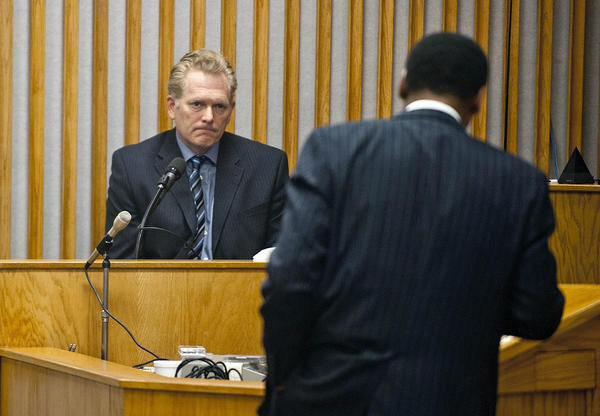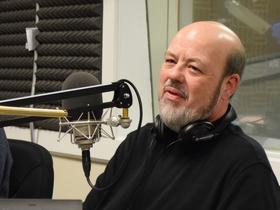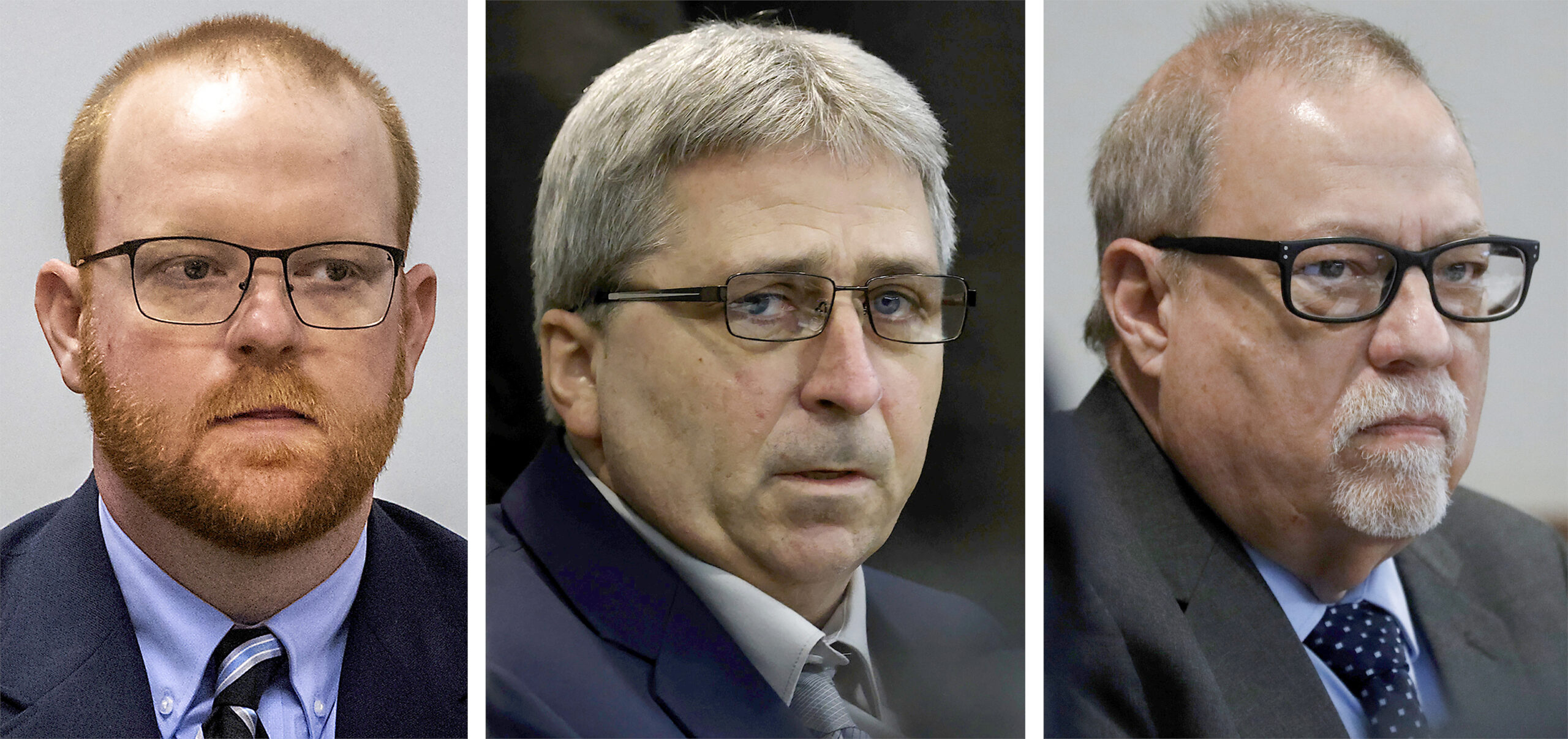
In an unprecedented outcome for Hollywood filmmakers, guilty pleas were entered in the criminal case involving the death of Sarah Jones and injury of six others, after a train accident last February while filming the Gregg Allman biopic “Midnight Rider.”
Director Randall Miller was sentenced to 10 years with two years to be served in Wayne County jail, taking into account time already served.
The plea deal stipulated that all charges against Miller’s wife and business partner, Jody Savin, be dropped. Executive producer Jay Sedrish also pleaded guilty to involuntary manslaughter and criminal trespassing charges during the Wayne County court proceedings.
Defense Attorney Don Samuel talked first with “A Closer Look” hosts Rose Scott and Denis O’Hayer after Monday’s court proceedings, saying that Miller acknowledged greater precaution should have been taken, and there was a lack of communication between the crew about how many trains were expected on the tracks.
CSX said it did not give the crew permission to be on the tracks during that segment of filming in Jesup, Georgia, and provided email documentation to back up that claim. That resulted in fines against the production for violating safety regulations.
Rayonier, the timber company that manages the property where filming took place, was aware of the emails from CSX, but company employees opened up a locked gate and let the crew in to film, according to Samuel.
“There were lots of signals that were received that were contradictory to Mr. Miller and Ms. Savin,” Samuel said.
Samuel said a fourth defendant, Assistant Director Hillary Schwartz, who had her case severed from this trial, also pleaded guilty.
The plea deal
It was important to Miller that his wife be able to be home to take care of their two children, according to Samuel. If he had been convicted, he would have faced a longer sentence. Miller admitted that he had sufficient information and should not have shot on the tracks. Samuel said Miller pleaded guilty to the following facts:
The facts that the State said it could prove in trial that a couple requests were made to CSX railroad to be permitted to film on the tracks, and on both occasions CSX said ‘no.’ One was for a different scene. The one dealing with the trestle, the request was made on February 14, 2014. And on the morning of the shooting, CSX responded in essence and said, ‘No, you can’t use our tracks.’ The film crew was already loaded up and went out to the scene and shot what ended up being all of about a two or three-minute scene on the tracks. And unexpectedly a train came and, as you reported earlier, the train hit a bed which was on the tracks. It shattered, and a piece of debris flew and hit and killed the crew person … The evidence is that an email was sent to a member of the crew, the person in charge of location. The person in charge of location said he discussed that email with a number of other people, including Randy. They were unclear what exactly what that email meant, it wasn’t absolutely clear. Then they were told by Rayonier, the people who on the property through which the tracks go, that it was okay to come and shoot the scene. So there was some confusion about it, but he admitted that he committed the crime.
Sarah Jones, a 27-year-old camera assistant, was the crew member killed by debris when a train, traveling 55 mph, struck a bed on the tracks while the film crew shot a dream sequence on a railroad trestle on Feb. 20, 2014.
Six other people were injured.
Chris Palmer is a Georgia-based film and television safety consultant, who started his career in production safety and risk management in Los Angeles in 1994. He told Rose and Denis the outcome of this case has a global effect on the film industry.
“We have seen over the years in production, the awareness and the concern for safety sometimes seems to ebb and flow,” Palmer says. “The tide rises and falls.”
He referenced the “Twilight Zone” accident nearly 30 years ago, when a helicopter crash killed actor Vic Morrow and two children on the film set. Palmer said that accident really sparked the formalization of safety in the film industry. But defendants in the “Twilight Zone” case were acquitted of criminal charges, and Palmer believes that decision sent an inadvertent message:
That it’s very difficult to successfully prosecute someone. And some people thought, ‘Well, they won’t be able to ever prosecute,’ and that’s certainly not true, and I think this case has brought that to everyone’s mind.
Palmer thinks the “Midnight Rider” case is reminding people of what can go wrong, whether intentionally or unintentionally.
The attorney representing Richard and Elizabeth Jones, issued the following statement on their behalf:
There were no winners in court this morning. Our daughter is gone and there is tremendous loss for all involved. Many bad decisions and careless actions culminated on February 20, 2014, when our daughter was killed doing her job — setting up a shot for a movie. It never should have happened. But, to be clear, we are not now, and never have been, seeking revenge for Sarah’s death. We do want those responsible to be held accountable and are satisfied with the terms of the agreement reached between the District Attorney’s office and defense attorneys. Our work continues as we refuse to allow our daughter’s death to be in vain. It is our mission to see that Sarah’s sacrifice will change, for the better, the industry she loved so much. We are Sarah Jones.
Listen to the full interview with Defense Attorney Don Samuel, as he discusses the outcome of court proceedings against Director Randall Miller, Executive Producer Jay Sedrish and Assistant Director Hillary Schwartz in the “Midnight Rider” case in Wayne County, Georgia.
Listen to the full interview with Chris Palmer, of Entertainment Risk Consulting, LLC, as he discusses his years of experience in set safety consulting and how the “Midnight Rider” case affects the entire film industry.


9(MDAxODM0MDY4MDEyMTY4NDA3MzI3YjkzMw004))









